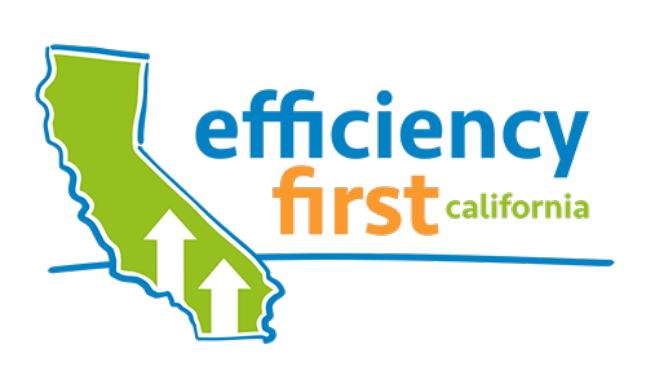Posted by Charley Cormany, EFCA Executive Director
We need to transition to clean energy
When it comes to energy, society is at a crossroads. Our existing supplies are heavily based on fossil fuels, a limited and dirty solution. There is no question that we must transition to a cleaner and more sustainable future. Fortunately, there are alternatives to the current system, but we need to be realistic about both the technical challenges and opposition of entrenched interests to this necessary change.
This is not the first time we have seen an energy transition
We have witnessed significant energy revolutions in the past. Dring the Industrial Revolution, human and animal power were replaced. Factories burned coal to boil water, which created steam to power engines and machinery, and a new, worldwide economy was built. In the late 1800s coal and steam were slowly challenged by another fossil fuel, crude oil. Crude oil, and its petroleum derivatives, have fueled the lifestyle and luxuries we enjoy today.
The problem with fossil fuels
The problem with coal, oil and other fossil fuels is twofold. First, fossil fuels are by definition a limited and dwindling resource. Second, the emissions created from burning fossil fuels is a threat to our environment. I think it is obvious to most that our atmosphere only has so much capacity to absorb the pollution we are dumping into it, and we are rapidly reaching that limit. To help illustrate this concern, consider this fact: if the earth were the size of a basketball, our atmosphere would be the thickness of one layer of plastic wrap–that’s it. All of the air we breathe, all of the moisture in the form of clouds, all of the emissions from pollutants, are contained in this tiny layer above our planet. Without that layer, we suffocate or burn up–neither a great option.
No matter how much you believe or deny the effect that people are having on the planet, I think one thing is clear. We cannot rely on the use of fossil fuels as a long term sustainable solution. Eventually, we will have to meet our energy needs in other ways. So what is the best energy source in a post fossil fuel era?
What are the best energy choices?
For transportation, the instant torque, reliability, efficiency, and simple design of electric motors makes them an obvious choice. Someday our children may look back and reminisce with nostalgia about driving internal combustion engine (ICE) cars, wondering how we tolerated the noise they made, the smells from their emissions, and having to fill them up with fuel on a regular basis.
But what do we do about energy use in our buildings? In the United States, 40 percent of the energy we use is consumed by residential and commercial buildings. This means buildings use more energy than the transportation sector, which accounts for 29 percent of energy use.
For many buildings, natural gas is currently the fuel of choice, but the fact that it’s a fossil fuel limits its long-term viability. The same holds true for fuel oil and propane.
Fortunately, as with transportation, electricity has the potential to become the fuel source of the future for buildings. Electricity can be created by a variety of clean, renewable sources, and it is relatively easy to distribute. Generation can be done remotely, as is typically the case now, or site-generated by solar PV panels. Options for storing renewable energy for times when the wind isn’t blowing and the sun isn’t shining are becoming more and more viable.
Electric appliances are a smart choice
An added benefit is that most electric appliances are much more efficient than their fossil fuel counterparts. For example, where the best gas furnace is 98 percent efficient, a heat pump used for the same application can be 300 percent efficient or more. This holds true for water heating and many other building energy use scenarios. If we use technology to our advantage, electricity can provide a long term sustainable solution for the majority of our energy needs.
Great – we have figured it out, electricity is the future fuel for buildings. Now all we need to do is convince everyone that this is the way to go and now is the time to do it, right? Unfortunately, it might not be that easy, given the variety of interests that have an opinion and vested interest in the outcome of such a huge transition.
The process of change
Recently, I was in Sacramento to testify in support of a proposed bill that would define some goals for Zero Net Energy (ZNE) and emissions reductions in buildings. The bill, AB 3232, was supported by the National Resources Defense Council.
If you have never witnessed the process, it goes a bit like this. The bill is submitted and gets a place on the roster. You wait around outside the chambers, in a room full of lawyers and special interest group representatives. On this day, the chambers were filled to capacity as stakeholders and representatives listened to the various proposals. Typically, the author of the bill provides an outline of the bill’s objectives and then presents witnesses to support their position. After the witnesses have spoken, the forum is opened up to public comment. It is a formal process, as the outcome is legislation, in the form of regulations or new laws.
This was not the first time I participated as a witness for proposed regulation, but even so it was a bit intimidating. We sat patiently, waiting through the discussion of a variety of other environment-related proposals such as new regulations on automotive tire recycling, etc. When our bill was up, we were told that due to time concerns, instead of having the normal three minutes to respond, we would have to restrict our comments to our name, organization and whether we were in favor or opposed to the regulation. In short, all of our preparation and waiting would boil down to a comment of 30 seconds or less.
I stated more than my name, organization and position, but not much. My entire comment was perhaps 15 seconds long. I was a bit surprised that many other witnesses ignored the request for brevity and presented their position in more than a few words. Somehow the chairman had no regard for time limits when it came to hearing opposing arguments, which I felt was a bit unfair.
A representative from a gas utility expressed his opposition. A propane representative argued that the goals of the bill were infeasible. The natural gas industry representative stood up and stated that natural gas is three times as efficient as electricity and one third the cost (I would love to see how they make that math work). The line went on. It seemed half of the room was there to protect their interests. The negative comments continued, including a personal attack on one of the witnesses from an assembly member, which felt like high school all over again. There were concerns about increasing real estate costs, concerns about not being able to cook with electricity, and so on.
This experience made me aware of two things. One, how reluctant people are to change, and two, how much money is involved when it comes to anything that impacts the fossil fuel industry.
What can we learn from this experience?
What do we make of this? First off, it’s clear that the push toward electrification will be a long, slow, uphill battle. There are plenty of people making lots of money now who have no desire to embrace this change.
We need to support energy efficiency in general
The second point is a bit broader. Regardless of our personal beliefs, we need to embrace all forms of energy efficiency. I personally believe that site-produced electricity and heat pumps mixed with storage are the right path for the future. That said, it will be many moons until this is the norm. In the meantime, we need to address efficiency across the entire spectrum. For example, if you are going to put a gas furnace and water heater in, make sure it’s a high efficiency model.
Large scale change is a slow process
Even if the future of energy for buildings is obvious to us, getting buy-in and adoption from the bulk of stakeholders involved will be a long and difficult process. We need to accept the fact that change will be a slow process. We need to encourage energy efficiency at every opportunity, regardless of the fuel source. Electrification might be the right answer, but getting people to participate en masse will take time.
There are plenty of people in this world who make loads of money from the inefficiency of the current system. To suggest that reducing waste by encouraging energy efficiency is a good idea will be a tough sell. We need to be persistent and make saving energy the correct and profitable choice if we expect to truly change the direction of energy use in the future.
Charles Cormany
Executive Director
Efficiency First California
Image from iStock


